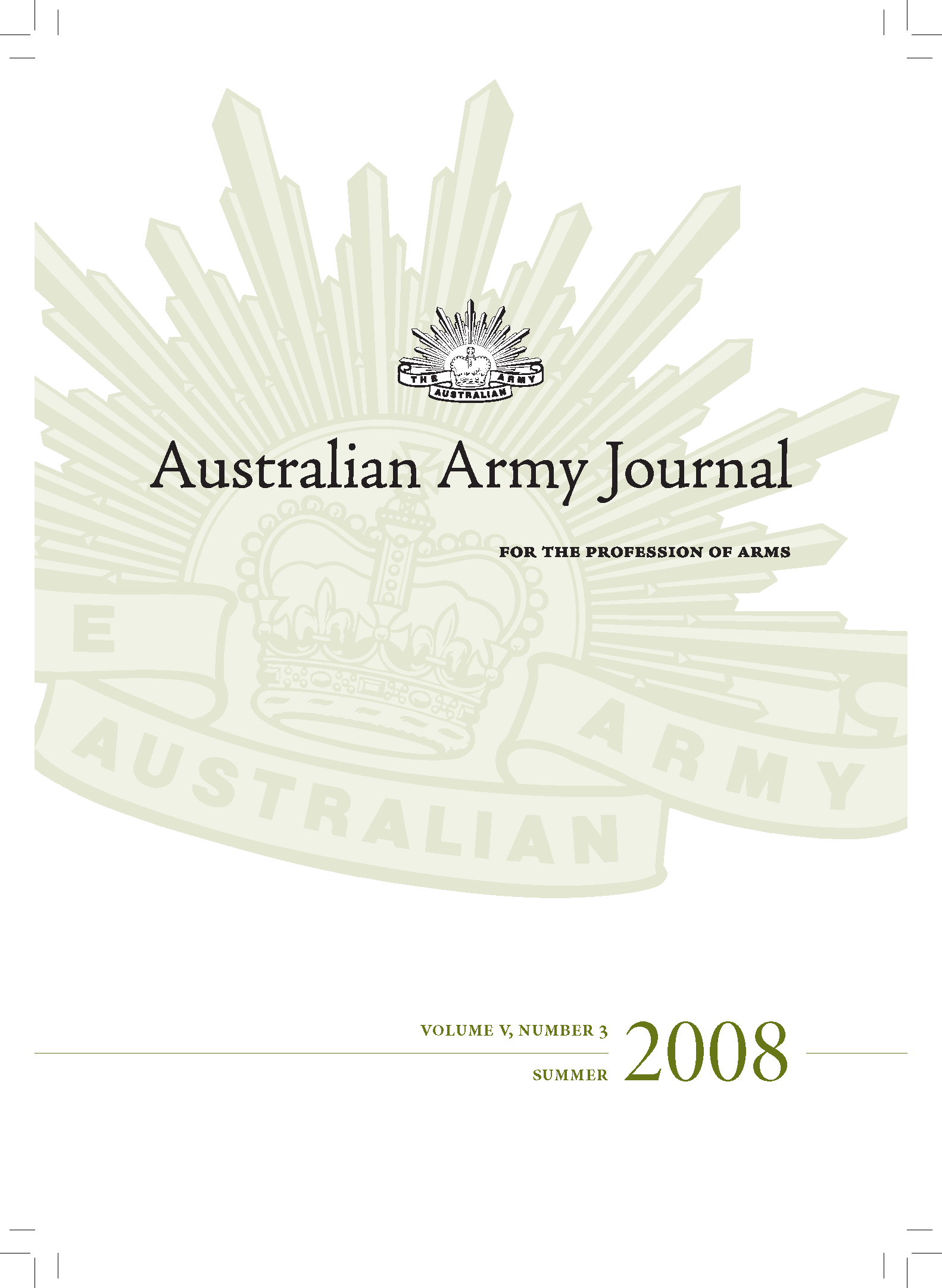This edition of the Australian Army Journal appears at a time of significant change for the Australian Army. Since the publication of the previous edition, Lieutenant General Ken Gillespie has assumed command as the Chief of Army. The Chief has undertaken a significant reform of the organisation of the Army—the most substantial in nearly four decades.
The Adaptive Army initiative will replace the system of functional commands, which had been designed by the late General Sir Francis Hassett. These functional commands remained largely intact from 1973. While appropriate for that era and the period of relatively low tempo operations that followed the Vietnam War, this organisation has been rendered obsolete by the fundamental changes in the way the Australian Defence Force conducts operations. In particular the higher level command and control systems of the twenty-first century ADF are inextricably joint, and increasingly, multi-agency and whole-of-government. Army’s internal structures had not adapted to reflect this change.
Moreover, arbitrary divisions between responsibility for individual and collective training were undermining the effectiveness of Army’s force preparation and generation efforts. This also impeded Army’s ability to integrate and rapidly disseminate lessons learned from current operations. This had to change. As Lieutenant General Gillespie explained at his recent exercise in Brisbane, ‘a small army must focus heavily on organisational, cultural and leadership agility’. The Adaptive Army reforms are aimed squarely at achieving that agility. In this edition we publish an article by the Chief of the Army in which he explains the nature and scope of these essential changes.
We are also pleased to commend to the wider Army the Chief of Army’s opening remarks to his annual History Conference that he delivered in October. The Chief raised the issue of the ephemeral nature of modern electronic records, which have largely replaced the written orders, war diaries and even personal correspondence of earlier wars. While the information revolution has brought many beneficial effects to the command and control of operations, it will present a challenge to the historians of the future. This is of more than academic interest. History begins yesterday, and the process of identifying lessons learned for input into the Army learning loop overlaps with the work of operational historians. This need highlights the importance of the Australian Army Journal in providing a forum for our officers, NCOs and soldiers to record their contemporaneous experiences in an enduring and easily available form.
In that regard we are delighted with the contents of the Summer 2008 edition. We continue to receive a steady stream of manuscripts from the members of the Army and the wider Defence Force. In particular, the contributions from members returning from operations are of considerable value. We are pleased to announce that one such article, by Colonel John Frewen, has won the Chauvel Essay Prize for 2008. His essay on his experiences in Afghanistan, which was published in the Autumn 2008 edition of the AAJ, earned praise from senior officers of allied armies. The trend of returning soldiers writing on their experiences is continued in this edition with articles by a former Chauvel Essay prize winner, Major Michael Scott, who recounts his experiences with the Multi-National Force in Iraq, and Warrant Officer Michael Craig, who reflects upon his time at the COIN Academy at Taji.
If there is one area in which the Australian Army Journal needs to respond to the Chief’s challenge, it is in the area of analysis of Army’s contribution to joint operations. While the Australian Defence Force Journal is also focused on joint issues, contributors to this Journal must adopt a joint perspective in reflecting on their experiences.
This edition appears as a very demanding year draws to a close. Next year will present even greater challenges to the Army in its service to the nation. The new White Paper should appear before our next edition. Nor is there any sign that operational tempo will slacken. And of course the process of structural and cultural change entailed in the Adaptive Army will make demands on the entire Army, both our military and civilian workforce.
Accordingly, we wish all our readers fortunate enough to be able to take leave a safe and happy Christmas. To our mates deployed on operations we wish them also a safe Christmas. We also extend the thoughts and best wishes of the entire Army family to the families of our men and women who are away from their loved ones at this special time. In that regard we note that since the last edition of the Australian Army Journal appeared, another Australian soldier was killed on operations in Afghanistan. To the family and loved ones of Signaller Sean McCarthy, we extend our respectful condolences.

